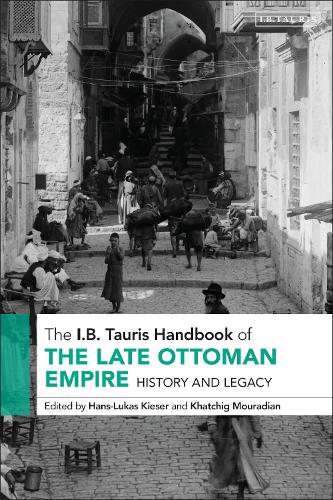
The I.B. Tauris Handbook of the Late Ottoman Empire: History and Legacy
(Hardback)
Publishing Details
The I.B. Tauris Handbook of the Late Ottoman Empire: History and Legacy
By (Author) Hans-Lukas Kieser
Edited by Khatchig Mouradian
Bloomsbury Publishing PLC
I.B. Tauris
30th October 2025
United Kingdom
Classifications
Professional and Scholarly
Non Fiction
Middle Eastern history
Physical Properties
Hardback
768
Width 169mm, Height 244mm
Description
Drawing on contributions from an international group of more than forty established and emerging academics, this Handbook of the Late Ottoman Empire and the Modern Middle East presents an in-depth exploration of the scholarship that has recently emerged in the vibrant fields and subfields on the religious and ethnic communities and nation-states it covers. Within the broad rubric of political history, it tackles religion, gender, identity, social conditions, environment and histories from below, from peripheries and from borderlands. Divided into six sections with six to eight chapters in each, the volume guides the reader chronologically through transformations shaped by the empires political elite and stakeholders large and small: from Abdulhamids rule, the Constitutional period and the Great War to unmet milestones when new treaties determined the post-Ottoman Middle East for a century to come. Throughout, thematic chapters revise a linear vision of history. These diachronic explorations trace the long arc of issues such as environment or religiously defined communities, as well as shadows cast by the seismic shifts under study like refugee crises, demographic engineering, transnational revolutionaries and borderlanders, (re)imaginings of the caliphate and of eschatological futures, and the legacies and afterlives of treaties. Surveying the state of the art of the scholarship its interdisciplinary dimensions and future directions, and foregrounding the formative role of mass violence in the history of the region, this handbook serves as a reference to researchers, diplomats, students, and the general reader.
Author Bio
Hans-Lukas Kieser is Associate Professor in the Centre for the Study of Violence at the University of Newcastle, Australia, and Adjunct Professor of history at the University of Zurich, Switzerland. He has been a guest professor at the University of Stanford, USA, the EHEES, France and the University of Michigan, USA. Khatchig Mouradian is Lecturer in Middle Eastern, South Asian, and African Studies (MESAAS) at Columbia University, USA. He is the author of The Resistance Network: The Armenian Genocide and Humanitarianism in Ottoman Syria, 1915-1918 (2021). Mouradian has published articles on concentration camps, unarmed resistance, the aftermath of mass violence, midwifery in the Middle East, and approaches to teaching history. He is the co-editor of a forthcoming book on late-Ottoman history, and the editor of the peer-reviewed journal The Armenian Review. Mouradian has taught courses on imperialism, mass violence, urban space and conflict in the Middle East, the aftermaths of war and mass violence, and human rights at Worcester State University, USA, Clark University, USA, Stockton University, USA, Rutgers University, USA, and California State University Fresno, USA.
